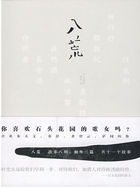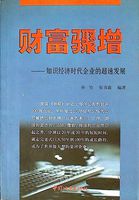Although one or two ardent young people rushed into print to defend me from the charge of "abetting anarchy," it seemed to me at the time that mere words would not avail. I had felt that the protection of the law itself extended to the most unpopular citizen was the only reply to the anarchistic argument, to the effect that this moment of panic revealed the truth of their theory of government; that the custodians of law and order have become the government itself quite as the armed men hired by the medieval guilds to protect them in the peaceful pursuit of their avocations, through sheer possession of arms finally made themselves rulers of the city. At that moment I was firmly convinced that the public could only be convicted of the blindness of its course, when a body of people with a hundred-fold of the moral energy possessed by a Settlement group, should make clear that there is no method by which any community can be guarded against sporadic efforts on the part of half-crazed, discouraged men, save by a sense of mutual rights and securities which will include the veriest outcast.
It seemed to me then that in the millions of words uttered and written at that time, no one adequately urged that public-spirited citizens set themselves the task of patiently discovering how these sporadic acts of violence against government may be understood and averted. We do not know whether they occur among the discouraged and unassimilated immigrants who might be cared for in such a way as enormously to lessen the probability of these acts, or whether they are the result of anarchistic teaching. By hastily concluding that the latter is the sole explanation for them, we make no attempt to heal and cure the situation. Failure to make a proper diagnosis may mean treatment of a disease which does not exist, or it may furthermore mean that the dire malady from which the patient is suffering be permitted to develop unchecked. And yet as the details of the meager life of the President's assassin were disclosed, they were a challenge to the forces for social betterment in American cities. Was it not an indictment to all those whose business it is to interpret and solace the wretched, that a boy should have grown up in an American city so uncared for, so untouched by higher issues, his wounds of life so unhealed by religion that the first talk he ever heard dealing with life's wrongs, although anarchistic and violent, should yet appear to point a way of relief?
The conviction that a sense of fellowship is the only implement which will break into the locked purpose of a half-crazed creature bent upon destruction in the name of justice, came to me through an experience recited to me at this time by an old anarchist.
He was a German cobbler who, through all the changes in the manufacturing of shoes, had steadily clung to his little shop on a Chicago thoroughfare, partly as an expression of his individualism and partly because he preferred bitter poverty in a place of his own to good wages under a disciplinary foreman. The assassin of President McKinley on his way through Chicago only a few days before he committed his dastardly deed had visited all the anarchists whom he could find in the city, asking them for "the password" as he called it. They, of course, possessed no such thing, and had turned him away, some with disgust and all with a certain degree of impatience, as a type of the ill-balanced man who, as they put it, was always "hanging around the movement, without the slightest conception of its meaning."
Among other people, he visited the German cobbler, who treated him much as the others had done, but who, after the event had made clear the identity of his visitor, was filled with the most bitter remorse that he had failed to utilize his chance meeting with the assassin to deter him from his purpose. He knew as well as any psychologist who has read the history of such solitary men that the only possible way to break down such a persistent and secretive purpose, was by the kindliness which might have induced confession, which might have restored the future assassin into fellowship with normal men.
In the midst of his remorse, the cobbler told me a tale of his own youth; that years before, when an ardent young fellow in Germany, newly converted to the philosophy of anarchism, as he called it, he had made up his mind that the Church, as much as the State, was responsible for human oppression, and that this fact could best be set forth "in the deed" by the public destruction of a clergyman or priest; that he had carried firearms for a year with this purpose in mind, but that one pleasant summer evening, in a moment of weakness, he had confided his intention to a friend, and that from that moment he not only lost all desire to carry it out, but it seemed to him the most preposterous thing imaginable. In concluding the story he said;
"That poor fellow sat just beside me on my bench; if I had only put my hand on his shoulder and said, 'Now, look here, brother, what is on your mind? What makes you talk such nonsense? Tell me. I have seen much of life, and understand all kinds of men. I have been young and hot-headed and foolish myself,' if he had told me of his purpose then and there, he would never have carried it out. The whole nation would have been spared this horror." As he concluded he shook his gray head and sighed as if the whole incident were more than he could bear--one of those terrible sins of omission; one of the things he "ought to have done," the memory of which is so hard to endure.















